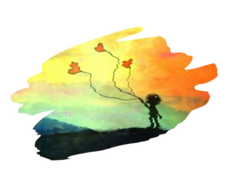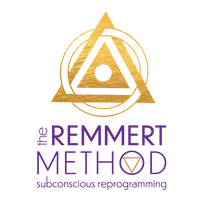According to the ACE Study, adverse childhood experiences play a powerful role in adult failures, challenges, and self-sabotage patterns. Based on the latest neuroscience, we teach you how to change the negative implicit childhood memories created by adverse childhood experiences, to allow for current and future success in all areas of life.
Implicit childhood memories provide the “evidence” that proves our self-image and worldview[1]. In turn, our self-image and worldview provide the foundation for our unconscious decisions and actions. And those memories can be changed to the opposite, positive, and empowering[2]!
[1] Implicit Memory: https://www.sciencedirect.com/topics/social-sciences/implicit-memory
[2] Memory Reconsolidation: https://www.sciencedirect.com/science/article/abs/pii/S1364661317300785
How Childhood Experiences Determine Success and Challenges

- From birth, every experience is recorded by the unconscious part of the brain, but not as a camera would record it. Every experience is interpreted, and given meaning - and then the meaning of that is recorded for future reference - creating our individual self-image and worldview.
- This is how we learn who we are and how the world works. (Implicit Memory)
It's how a baby can be born in rural Africa, or Hollywood, and learn to fit in and survive in that environment.
- Every moment, the brain is referring to the information it holds from previous experiences, as "proof" and "evidence" of who we are and how the world works - then triggering the organs, to produce chemicals.
- These chemicals create feelings, sensations, emotions, and impulses.
- The conscious mind then interprets those feelings, emotions, sensations, and impulses - and behaves accordingly. ("I'm not good enough" - for example)
- In addition to this, every new experience is filtered through the existing references created from past experiences, and then added to the structure of existing beliefs.
Can Memories Really Be Changed?
Science has discovered that memories are not only inaccurate and incomplete, but change every time we recall them. For more detailed information on this, with references to scientific research, read: The Science Behind Changing Childhood Memories
If you recall a memory right now, from when you were five-years-old, you are not bringing to mind a complete "movie" or picture. Your brain is, in fact, pulling together a range of resources, and "piecing" that memory together as you recall it. Memories are not stored as complete representations of events; they are put together in the moment you remember them, like a jigsaw puzzle. And the resulting memory is changed as you recall it, according to any new resources gathered since the last time you recalled it.
Just as every new experience is filtered through existing data held in the subconscious from previous experiences, memories are filtered through current data from all previous experiences to date.
IMPLICIT Memory vs DECLARATIVE Memory:
Changing Negative Childhood Memories to the opposite, positive, and empowering - is about making IMPLICIT memory DECLARITIVE memory - and replacing that implicit memory with whatever will help you to automatically achieve what you want to achieve, now.
In other words:
Changing the memories of being bullied in school - to where you were popular in school - changes those memories from implicit to explicit (or declarative). Which means you can still consciously recall what happened (declarative memory), but it is no longer running on automatic, in the background "proving" your limiting beliefs (I'm not good enough, etc.) and, instead, your brain now has "proof" of the opposite, empowering belief. That makes confidence automatic.
If you recall a memory right now, from when you were five-years-old, you are not bringing to mind a complete "movie" or picture. Your brain is, in fact, pulling together a range of resources, and "piecing" that memory together as you recall it. Memories are not stored as complete representations of events; they are put together in the moment you remember them, like a jigsaw puzzle. And the resulting memory is changed as you recall it, according to any new resources gathered since the last time you recalled it.
Just as every new experience is filtered through existing data held in the subconscious from previous experiences, memories are filtered through current data from all previous experiences to date.
IMPLICIT Memory vs DECLARATIVE Memory:
Changing Negative Childhood Memories to the opposite, positive, and empowering - is about making IMPLICIT memory DECLARITIVE memory - and replacing that implicit memory with whatever will help you to automatically achieve what you want to achieve, now.
In other words:
Changing the memories of being bullied in school - to where you were popular in school - changes those memories from implicit to explicit (or declarative). Which means you can still consciously recall what happened (declarative memory), but it is no longer running on automatic, in the background "proving" your limiting beliefs (I'm not good enough, etc.) and, instead, your brain now has "proof" of the opposite, empowering belief. That makes confidence automatic.
Dr. Amy Milton and Dr. Julia Shaw
Explain How Memories Can be Changed
Dr. Amy Milton: Can We Edit Memories?
"Trauma and PTSD rewire your brain -- especially your memory -- and can unearth destructive emotional responses when stirred. Could we eliminate these triggers without erasing the memories themselves? Enter neurologist Amy Milton's mind-blowing, memory-editing clinical research poised to defuse the damaging effects of painful remembered experiences and offer a potential path toward better mental health." - TED
Dr. Julia Shaw: Is Your Memory Just an Illusion?
"Julia Shaw takes you on an adventure into the weird world of memory hacking. She shows that through a combination of perceptual flaws, brain biases, and social influences, your memories can be easily influenced. Armed with science, she explores how even some of your most cherished and emotional memories might be nothing but fiction." - TED
How implicit memory from childhood determines our experiences as adults...
If I notice it's raining, outside, I immediately have a response: - I recognize it as "rain" - I instantly know that it's wet - I instantly know that if I walk out into it, I'll get wet - I also instantly have an automatic emotional response to it.
One person may feel drawn to walk in the rain. Another may feel reluctant to go out into it.
We can't remember how, when, or where we learned that rain is rain, that it's wet, that if we walk into it, we'll get wet... and we can't remember how we learned it feels "good" or "bad". But somewhere, in our childhood, implicit memory was created - to help us form an automatic assessment and response to this phenomenon.
The details of how that implicit memory was created - and therefore, the resulting "reality" - is, of course, different for different people.
One person may love the rain, while another hates it. And this happens without conscious awareness or engagement.
In the same way, implicit memory, created in childhood, determines our experience (and in-turn, our responses and reactions) of who we are and how the world works now - automatically. We see an expression, or hear someone say something, and we automatically and unconsciously (implicitly) know what that "means" - not based on what that person actually means, but based on our implicit memory from childhood - when we learned what it means, from those experiences. In the same way we learned that rain is rain.
Implicit memory is how we know we're "not good enough" or that we're "worthy" or that we're "unlovable".
Since memories can be changed (even implicit memories*) - the key to improving our lives as adults is changing those implicit memories to positive and empowering, so that they automatically "prove" who we want to be and what we want to achieve. :)
*Retroactive Interference in implicit memory:
https://www.sciencedirect.com/topics/social-sciences/implicit-memory
https://www.simplypsychology.org/proactive-and-retroactive-interference.html
Considering:
1. Childhood memories are forming the foundation "proof" and "evidence" within the subconscious, of who we are and how the world works
and
2. Memories are not accurate, and are constantly changing
- we can change those childhood memories that are providing the structure and support for limiting subconscious beliefs.
For example:
A person who has low self-confidence is experiencing lack of self-confidence because their brain is referring to "proof" and "evidence" from foundation childhood memories that they are not worthy, or not good enough, or whatever other unconscious beliefs have been built on that "evidence".
This means that the subconscious is constantly referring to that information - those memories - as "fact" - and then prompting the brain to trigger the organs to produce chemicals that create feelings of inadequacy, or inferiority etc.
The conscious mind, aware of the feelings, interprets them to mean "I'm not good enough", "They don't like me", "I can't do this", "I'm not clever enough" "love equals pain"... and so on.
Now, if that person were to use CMT to change those early childhood memories that are providing the "proof" for those beliefs, the subconscious would automatically be prompting the brain to trigger the organs to produce different chemicals. And these chemicals would create different feelings... which would result in a different self-image, and therefore, more confidence.
For instance, that person may have a memory of being humiliated by a teacher when they were 8 years old. And several memories of their parents being disappointed, angry, dismissive, or impatient with them.
They could change those memories to where their mother and father are loving, affectionate, respectful, and proud of them.
They could change the school memory to where the teacher is praising them, and impressed with what they've done.
The subconscious would then be referring to the new memories as "proof" and "evidence" that they are worthy, loved, valuable, respected, and intelligent. They would still have Declarative Memories of the original events. In other words - they would still know, consciously, what originally happened - it's just the Implicit Memories (that "prove" who we are and how the world works) that will have changed to the opposite, positive, and empowering. Self-confidence would be a natural and automatic result!
1. Childhood memories are forming the foundation "proof" and "evidence" within the subconscious, of who we are and how the world works
and
2. Memories are not accurate, and are constantly changing
- we can change those childhood memories that are providing the structure and support for limiting subconscious beliefs.
For example:
A person who has low self-confidence is experiencing lack of self-confidence because their brain is referring to "proof" and "evidence" from foundation childhood memories that they are not worthy, or not good enough, or whatever other unconscious beliefs have been built on that "evidence".
This means that the subconscious is constantly referring to that information - those memories - as "fact" - and then prompting the brain to trigger the organs to produce chemicals that create feelings of inadequacy, or inferiority etc.
The conscious mind, aware of the feelings, interprets them to mean "I'm not good enough", "They don't like me", "I can't do this", "I'm not clever enough" "love equals pain"... and so on.
Now, if that person were to use CMT to change those early childhood memories that are providing the "proof" for those beliefs, the subconscious would automatically be prompting the brain to trigger the organs to produce different chemicals. And these chemicals would create different feelings... which would result in a different self-image, and therefore, more confidence.
For instance, that person may have a memory of being humiliated by a teacher when they were 8 years old. And several memories of their parents being disappointed, angry, dismissive, or impatient with them.
They could change those memories to where their mother and father are loving, affectionate, respectful, and proud of them.
They could change the school memory to where the teacher is praising them, and impressed with what they've done.
The subconscious would then be referring to the new memories as "proof" and "evidence" that they are worthy, loved, valuable, respected, and intelligent. They would still have Declarative Memories of the original events. In other words - they would still know, consciously, what originally happened - it's just the Implicit Memories (that "prove" who we are and how the world works) that will have changed to the opposite, positive, and empowering. Self-confidence would be a natural and automatic result!
Watch a Live Real-Life Example of Childhood Memory Transformation:
But That's Not What Really Happened
* The subconscious does not use logic or reason - only the conscious mind is able to reason and use logic.
* The subconscious has no ability to judge right from wrong - like a computer, it simply operates according to the programming it currently holds.
* The subconscious cannot tell the difference between reality and imagination. When you watch a scary movie, your brain and body behave as if the threat is real - your heart-rate increases; adrenaline is pumped into your bloodstream; you go into the fight/freeze/flight state. But, at the same time, your conscious mind knows it's just a movie.
Changing memories is the same - your subconscious will believe whatever you give it, while at the same time, your conscious mind will know what originally happened.
* The subconscious has no ability to judge right from wrong - like a computer, it simply operates according to the programming it currently holds.
* The subconscious cannot tell the difference between reality and imagination. When you watch a scary movie, your brain and body behave as if the threat is real - your heart-rate increases; adrenaline is pumped into your bloodstream; you go into the fight/freeze/flight state. But, at the same time, your conscious mind knows it's just a movie.
Changing memories is the same - your subconscious will believe whatever you give it, while at the same time, your conscious mind will know what originally happened.
- Conscious mind - knows the difference between the original event and the new memory.
- Subconscious - doesn't know the difference, and will accept the new memory as "fact".
© COPYRIGHT 2016 ALL RIGHTS RESERVED.

